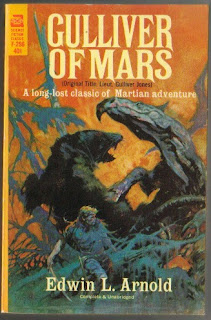by Robert E. Howard
Stay not from me that veil of dreams that gives
Strange seas and and skies and lands and curious fire,
Black dragons, crimson moons and white desire,
That through the silvery fabric sifts and sieves
Strange shadows, shades and all unmeasured things,
And in the sifting lends them shapes and wings
And makes them known in ways past common knowing--
Red lands, black seas and ivory rivers flowing.
How of the gold we gather in our hands?
It cheers, but shall escape us at the last,
And shall mean less, when this brief day is past,
Than that we gathered on the yellow sands,
The phantom ore we found in Wizard-lands.
Keep not from me my veil of curious dreams
Through which I see the giant things which drink
From mountain-castled rivers--on the brink
Black elephants that woo the fronded streams,
And golden tom-toms pulsing through the dusk,
And yellow stars, black trees and red-eyed cats,
And bales of silk and amber jars of musk,
And opal shrines and tents and vampire bats.
Long highways climbing eastward to the moon,
And caravans of camels lade with spice,
And ancient sword hilts carved with scroll and rune,
And marble queens with eyes of crimson ice.
Uncharted shores where moons of scarlet spray
Break on a Viking's galley on the sand,
And curtains held by one slim silver band
That float from casements opening on a bay,
And monstrous iron castles, dragon-barred,
And purple cloaks with inlaid gems bestarred.
Long silver tasseled mantles, curious furs,
And camel bells and dawns and golden heat,
And tuneful rattle of the horseman's spurs
Along some sleeping desert city's street.
Time strides and all too soon shall I grow old
With still all earth to see, all life to live:
Then come to me, my silver veil, and sieve,
Seas of illusion beached with magic gold.










































